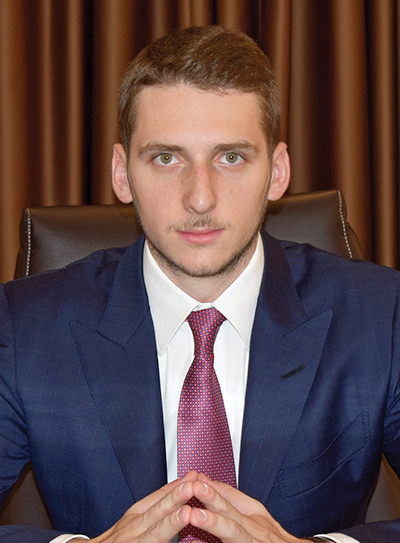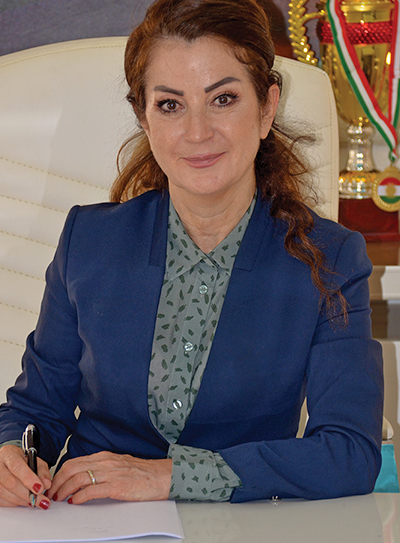The capital of oil and gas
The Kurdistan Regional Governorate’s most important economic sector is seeing increasing foreign direct investment both upstream and downstream
With the world’s tenth-largest oil reserves, “The Kurdistan Regional Governorate (KRG) is the capital of oil and gas exploration, and probably one of the top three places with untapped oil resources,” says Sirwan Sami Abdul Rahman, chairman of Renwa Group, KRG’s leading oilfield services provider.
The sector includes over 50 international players and dominates KRG’s economy but its development was curtailed in 2014 by ISIS and a global drop in oil prices. The last year, however, has seen many investment announcements from companies like Rosneft, DNO, Pearl Petroleum and Chevron. “We work exclusively with international companies and economic activity is really picking up,” states Rahman. He notes that Renwa’s revenue also took a hit when the central Iraqi government took control of the profitable Kirkuk oil fields from KRG in 2017. However, he comments: “KRG instituted a recovery plan by increasing oil production substantially.” KRG, which offers word-class production-sharing contracts, wants to quadruple oil production to 2 million barrels per day, while gas extraction is forecast to quintruple. It is also expanding its refining plants through private sector tenders, although it already has two major facilities: one owned by Kar Group near Erbil and the other by WZA Petroleum in Sulaimani. Investment is increasingly moving further downstream as well, says Rahman: “The focus used to be on building large-scale projects but now you see businesses providing quality retail services.”

Innovations in retail
One major example of this is KurdNeft, a chain of 11 state-of-the-art gas stations set up by its entrepreneurial Russian CEO, Yuri Pervak: “When I was at school, I worked here as a UN volunteer and could see the opportunities — so I came back three years ago. The gas station market was disorganized, inefficient and had no leading chains. I saw a broken-down station opposite an iconic mall and thought — why not?” Pervak bought the license, launched the business in 2015 and started modernizing the station, introducing technology and branding. “We noticed there is a big wealthy community in Erbil with expensive cars, so we differentiated ourselves by offering only premium oil to begin with. We were expensive but we educated people through marketing campaigns and built a brand people could rely on.” As it has expanded, KurdNeft continues to invest in design, automation and other cutting-edge service station practices. Its latest innovation is the KurdNeft membership card, says Pervak: “With this, corporate clients can increase control, safety and financial scrutiny in their organization.” Top multinationals have embraced the new system, as has the government, which is working with KurdNeft on future projects. Having created a successful and profitable Kurdish brand from scratch, Pervak is looking for his next challenge: “KurdNeft is running smoothly and there are plenty of opportunities — every day, I think of new projects!”
A CEO and politician leaving her mark on KRI
“The Kurdistan Region of Iraq (KRI) offers limitless opportunities, especially in oil and gas — international businesses investing here now can leave their mark on the nation,” says Parwen Babaker Hama Agha, who has already made her own considerable contribution to KRI’s economy.
In her current role as CEO of WZA Petroleum and throughout her career, the former Minister of Industry has focused on “policies that benefit KRI over the long term. For example, we got the contract to operate Bazian refinery because it was in our interest to establish a source of refined fuels and provide jobs for young people.” Having previously been responsible for the success of its first privatization, an important cement factory, she believes: “In a modern KRI, most sectors should be privatized, leaving the public sector to supervise.”

